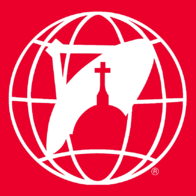- Nov 21, 2008
- 53,387
- 11,929
- Country
- United States
- Gender
- Male
- Faith
- SDA
- Marital Status
- Married
Some groups claim they are against religious liberty . One of those that appears to me to oppose religious liberty (as seen on this board board) is the Catholic church (and a few others).
It appears to me that they are arguing that religious liberty would result in a lot of confusing doctrines - no standard of pure doctrine. chaos.
IT also appears to me that they shoot their own argument in the foot while making their case.
========================
If you really believe that no one should use free will, religious liberty - to make up their own mind about what is right or wrong -- then you can make no appeal to a non-Catholic to accept Catholic doctrine - since choosing to do so would require that the person reject their own church magesterium and tradition -- evaluate arguments to the contrary - and make a choice against the teaching, direction, approval of their own respective magesterium. The very thing you say - should not be done.
In Acts 17:11 we see people doing that very thing. Rejecting the tradition, authority , doctrine of their magesterium and switching from Judaism to Christianity by "studying the scriptures daily to see IF those things spoken to them by the Apostle Paul - were SO"
That means that there is only one logical view - and that is the one for religious liberty where individuals decide for themselves.
UNLESS we find someone here saying "I believe in doctrine 'X' because my Catholic church tells me to - and since you are not Catholic and I believe you have no religious liberty - I think your only option is to conclude that the Catholic teaching is in error - your own group is has the correct view and you should believe as you are instructed to by your group's magesterium regarding the existence of religious liberty and free will" -- we don't even have a test case to evaluate the existence of a no-religious liberty proposal. They violate their own proposal each time they argue that their view is the right one and others should be able to see the point.
But we never see that. Because that does not work.
The very existence of a board like this and the discussions we find here - even by those who claim there is no religious liberty or else there "should be no religious liberty" proves over and over that religious liberty is in fact the only option.
====================================================== for the sake of a point of reference
EWTN on "the problem of religious liberty"

 www.ewtn.com
www.ewtn.com
"
Author: Thomas Storck
THE PROBLEM OF RELIGIOUS LIBERTY: A NEW PROPOSAL
Thomas Storck
" We are all likely familiar with arguments of this sort, arguments made in varying ways by theologians who refuse to accept all the teachings of the Church's magisterium.1 When pressed for specifics, moreover, the two points on which they generally allege the Church has changed her doctrine are the licitness of usury2 and the question of religious liberty. And if the magisterium really has changed on these issues, then it is hard not to concede to them their point. For if the teaching of the ordinary magisterium on usury or religious liberty has changed over the centuries because of changing social conditions, then why not teaching on contraception or divorce? Therefore, it seems to me of the greatest importance for orthodox Catholics to be able to demonstrate that the Church has never changed any point of its magisterial teachings nor can she."
...
"How widespread in time and place must a teaching be found before it becomes "universal," for example? In the case of religious liberty we have the teachings of at least four popes of the nineteenth and twentieth centuries, most of them speaking in formal documents such as encyclicals, and seemingly speaking at variance with the doctrine contained in the Vatican II document <Dignitatis Humanae> (Declaration on Religious Liberty). We should be curious, to put it mildly, to understand how the Church could seem thus to contradict herself when proclaiming God's truth. Yet if all efforts to solve the problem are not successful, it is possible that, despite appearances, the earlier teaching on the subject was not part of the Church's "ordinary and universal teaching," and therefore the problem is more apparent than real. But if it is admitted that the teachings of Popes Gregory XVI, Pius IX, Leo XIII and Pius XII on the subject of religious liberty are part of the ordinary magisterium, then we must by some means show how their teaching was not changed in 1965, when the decree on religious liberty was adopted.
It appears to me that they are arguing that religious liberty would result in a lot of confusing doctrines - no standard of pure doctrine. chaos.
IT also appears to me that they shoot their own argument in the foot while making their case.
========================
If you really believe that no one should use free will, religious liberty - to make up their own mind about what is right or wrong -- then you can make no appeal to a non-Catholic to accept Catholic doctrine - since choosing to do so would require that the person reject their own church magesterium and tradition -- evaluate arguments to the contrary - and make a choice against the teaching, direction, approval of their own respective magesterium. The very thing you say - should not be done.
In Acts 17:11 we see people doing that very thing. Rejecting the tradition, authority , doctrine of their magesterium and switching from Judaism to Christianity by "studying the scriptures daily to see IF those things spoken to them by the Apostle Paul - were SO"
That means that there is only one logical view - and that is the one for religious liberty where individuals decide for themselves.
UNLESS we find someone here saying "I believe in doctrine 'X' because my Catholic church tells me to - and since you are not Catholic and I believe you have no religious liberty - I think your only option is to conclude that the Catholic teaching is in error - your own group is has the correct view and you should believe as you are instructed to by your group's magesterium regarding the existence of religious liberty and free will" -- we don't even have a test case to evaluate the existence of a no-religious liberty proposal. They violate their own proposal each time they argue that their view is the right one and others should be able to see the point.
But we never see that. Because that does not work.
The very existence of a board like this and the discussions we find here - even by those who claim there is no religious liberty or else there "should be no religious liberty" proves over and over that religious liberty is in fact the only option.
====================================================== for the sake of a point of reference
EWTN on "the problem of religious liberty"

The Problem of Religious Liberty: A New Proposal | EWTN
EWTN is a global, Catholic Television, Catholic Radio, and Catholic News Network that provides catholic programming and news coverage from around the world.
"
The Problem of Religious Liberty: A New Proposal
Author: Thomas Storck
THE PROBLEM OF RELIGIOUS LIBERTY: A NEW PROPOSAL
Thomas Storck
"Since the Catholic Church has changed her authoritative teaching on more than one point of faith and morals, there is absolutely no reason why she cannot be expected to change it on others. And, this being the case, to silence dissenting theologians is very possibly to prevent the discovery and propagation of new truths, truths which the Church herself will eventually come to accept."
" We are all likely familiar with arguments of this sort, arguments made in varying ways by theologians who refuse to accept all the teachings of the Church's magisterium.1 When pressed for specifics, moreover, the two points on which they generally allege the Church has changed her doctrine are the licitness of usury2 and the question of religious liberty. And if the magisterium really has changed on these issues, then it is hard not to concede to them their point. For if the teaching of the ordinary magisterium on usury or religious liberty has changed over the centuries because of changing social conditions, then why not teaching on contraception or divorce? Therefore, it seems to me of the greatest importance for orthodox Catholics to be able to demonstrate that the Church has never changed any point of its magisterial teachings nor can she."
...
"How widespread in time and place must a teaching be found before it becomes "universal," for example? In the case of religious liberty we have the teachings of at least four popes of the nineteenth and twentieth centuries, most of them speaking in formal documents such as encyclicals, and seemingly speaking at variance with the doctrine contained in the Vatican II document <Dignitatis Humanae> (Declaration on Religious Liberty). We should be curious, to put it mildly, to understand how the Church could seem thus to contradict herself when proclaiming God's truth. Yet if all efforts to solve the problem are not successful, it is possible that, despite appearances, the earlier teaching on the subject was not part of the Church's "ordinary and universal teaching," and therefore the problem is more apparent than real. But if it is admitted that the teachings of Popes Gregory XVI, Pius IX, Leo XIII and Pius XII on the subject of religious liberty are part of the ordinary magisterium, then we must by some means show how their teaching was not changed in 1965, when the decree on religious liberty was adopted.
Last edited:

